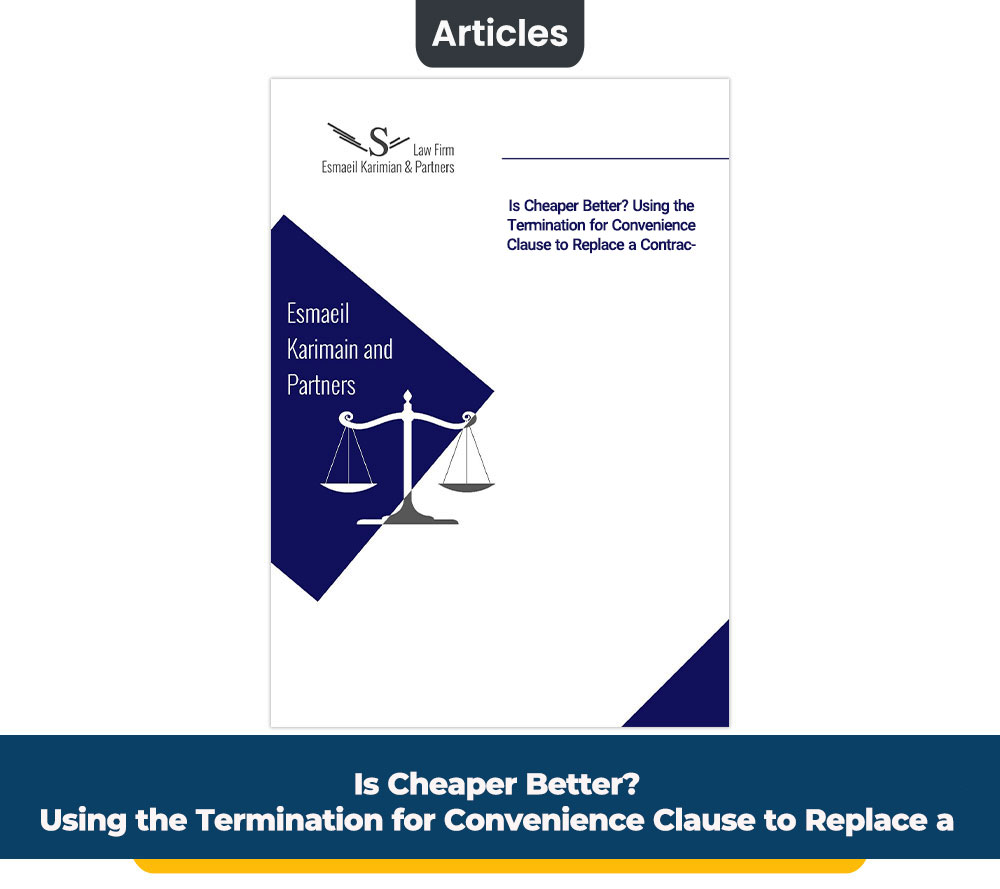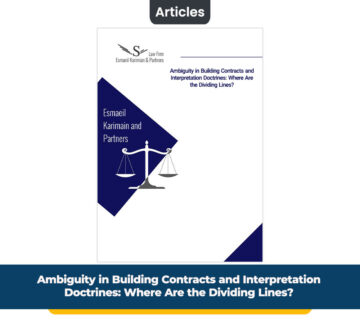Is Cheaper Better? Using the Termination for Convenience Clause to Replace a Contractor
The fundamental principle of “binding force of contract” is that neither party can easily revoke a contract and deprive the other party of the rights they expect to receive from the contract. At the same time, the principle of “freedom of contract” allows the parties to define the scope of their obligations, which will then be given effect by the law. By aligning the two principles, the common law recognizes both parties’ choices to incorporate the express right of termination in their binding contract for one or both of them, which may be the termination for cause or termination at the will of the party upon whom the right is conferred, which is known as termination for convenience (TFC).
Regarding the history of termination for convenience, it is said that this “clause dates to the mid-1900s, when at a time of newfound peace, the U.S. government needed a mechanism by which to quickly extricate itself from the extensive contractual obligations into which it had entered during wartime”. Today, however, the TFC provision is widely used in commercial contracts and is increasingly appearing in construction agreements. The protection of public interests, economic instability and ongoing uncertainty regarding the regulatory environment in the medium to long term have been the major reasons for which employers use the TFC clause in contracts.
Considering the principle of freedom of contract, common law court was reluctant to interfere with the intentions of parties that led to the termination of contracts; no challenge was raised regarding whether the termination provision is reasonable or whether it is reasonable for a party to enforce it. However, it is believed that the principle of freedom of contract was everywhere in retreat during the 20th century due to inequality in the bargaining powers of contracting parties and the undue influence of this principle on consumers’ true interests. Therefore, courts and governments have tried to curb the principle through statutory regulations or equitable rules such as good faith and fair dealing so that contracts can reflect the reality of today’s business conditions.
Termination for convenience represents the highest level of contractual freedom, as it allows the powerful party to withdraw from the contract at any time without any reason, even if it damages the commercial stability of the counterparty. Nevertheless, common law courts demonstrate that the TFC clause does not give employers an unlimited ability to abuse their discretion; as such, the application of this clause is subject to certain limitations. One example of an owner’s justification for using the TFC clause is being offered a cheaper deal to finish construction work; the clause enables them to remove the contractor from an entire construction project or parts of it. If the employer is a state organization, preserving the public budget is another reason that may be presented to justify changing a contractor to get a better price for the remaining work.
The main purpose of this article is to examine the use of the TFC clause and whether this clause allows employers and owners to engage a new contractor after a contract has already been awarded to a different contractor. This study also explores different opinions regarding the conflict between the TFC clause and the duty of good faith and considers an approach that can be followed to avoid the unexpected interpretation of the clause.





No comment